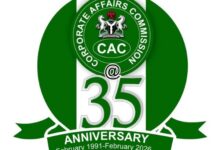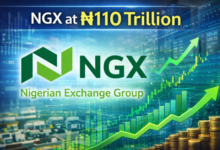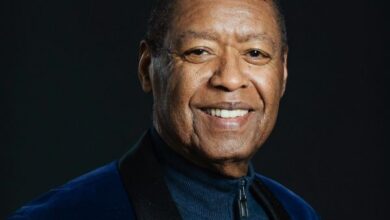Grain initiative: 12 vessels authorised to depart Ukrainian ports – Coordinator
 Mr Frederick Kenney, Acting Coordinator for the UN at the Joint Coordination Centre for the Black Sea Initiative, has said that 12 vessels have been authorised to depart the Ukrainian ports.
Mr Frederick Kenney, Acting Coordinator for the UN at the Joint Coordination Centre for the Black Sea Initiative, has said that 12 vessels have been authorised to depart the Ukrainian ports.
Kenney disclosed this to journalists in New York on Wednesday via video link from Istanbul, Turkey that the ships contained more than 370,000 tonnes of grain and other food items.
“Those vessels had been stranded in the three ports covered by the initiative when the war started, “he said.
The initiative specifically allows for significant volumes of commercial food exports from three key Ukrainian ports in the Black Sea – Odessa, Chernomorsk and Yuzhny.
During the agreement signing ceremony in Istanbul on July 22, UN Secretary-General António Guterres called the initiative “a beacon of hope” in a world that desperately needs it.
He also announced the establishment of the Joint Coordination Centre to monitor the implementation that would be hosted in Istanbul and include representatives from Ukraine, Russia and Turkey.
Kenney said that the initiative had produced detailed procedures for participating vessels to follow, which had been disseminated to the shipping industry earlier this week.
“Our priority is to free up pier space in those ports so that the vessels come in and take new cargo.
“We have also authorised the movement of four vessels into the Ukrainian park ports so far for loading,” he said.
READ ALSO:https://brandeconomy.com.ng/naf-eliminates-terrorists-leader-shanono-in-kaduna/
The UN interim Coordinator reminded that the agreement is scheduled to last for 120 days.
“We still have much work ahead of us to ensure that the implementation of the initiative translates into real results to address food insecurity around the globe and to stabilise global food markets.
“We are off with a very good start,” he said.
Meanwhile, UN Spokesperson Stéphane Dujarric clarified a question raised by a journalist on a possible discount afforded to Turkey’s purchase of Ukrainian grain.
“We did much research, as much research as possible, and I can tell you that there was no discount built into the Black Sea Grain Initiative agreement that was signed in Istanbul.
“Furthermore, we are not aware of any other agreement that would guarantee such a discount,” he said.
(NAN)











